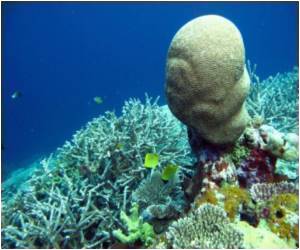British researchers say that warmer temperatures cause greater reduction in the adult sizes of aquatic animals than in land-dwellers.

This could have implications for aquatic food webs and the production of food by aquaculture.
"Given that fish and other aquatic organisms provide 3 billion people with at least 15 percent of their animal protein intake, our work highlights the importance of understanding how warming in the future will affect ocean, lake and river dwelling species," lead author Dr Jack Forster also from Queen Mary's School of Biological and Chemical Sciences said.
The research also demonstrates that the most likely cause of this difference in size is due to the much lower availability of oxygen in water than in air.
"To satisfy increased demands for oxygen at higher temperatures, aquatic species have fewer options. Reducing the size at which they mature is their way of balancing oxygen supply and demand," co-author Dr David Atkinson of the University of Liverpool said.
The researchers compared the extent to which the adult size of 169 terrestrial, freshwater, and marine species responded to different non-harmful temperatures, in the largest study of its kind.
Advertisement
"Aquatic animals shrink 10 times more than land-dwellers in species the size of large insects or small fish. While animals in water decrease in size by 5 percent for every degree Celsius of warming, similarly sized species on land shrink, on average, by just half a percent," Dr Andrew Hirst from Queen Mary's School of Biological and Chemical Sciences, said
Advertisement
Source-ANI









